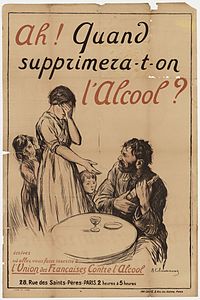
Photo from wikipedia
We have read with great interest the paper of Izutsu et al., referring to the data of the AUGMENT phase III clinical trial that report the benefit of lenalidomide plus… Click to show full abstract
We have read with great interest the paper of Izutsu et al., referring to the data of the AUGMENT phase III clinical trial that report the benefit of lenalidomide plus rituximab (R-Len) for relapsed refractory indolent B-cell non-Hodgkin lymphomas (B-NHL) [1]. The work from the National Cancer Center in Tokyo is very exciting. Still, indolent NHL are not the only cases where R-Len combination therapy might be of potential use, with aggressive lymphomas also benefiting from this alternative. Diffuse large B-cell lymphoma (DLBCL) is the most frequent B-NHL, accounting for approximately 30–40% of B-NHL [2]. The standard first line of therapy for this malignancy is represented by R-CHOP (rituximab, cyclophosphamide, doxorubicin, vincristine and prednisone) with the option of eliminating doxorubicin from the regimen in the case of patients with severe cardiovascular comorbidities [3]. Nonetheless, there is an important percent of people that relapse or do not respond after R-CHOP, thus needing to start the next line of chemotherapy. Some patients, especially elderly ones, are unfit for additional chemotherapy or for hematopoietic bone marrow transplant. Thus, clinicians prefer to use palliative care in these cases, for example R-Len [4]. In the current manuscript, we present the case of a relapsed elderly DLBCL patient that reached metabolic remission after R-Len. The patient presented with NYHA III congestive heart failure, persistent atrial fibrillation,and chronic cardiac ischemia, as well as asthenia, fatigue, night sweats, weight loss and latero-cervical adenopathy.The pathology diagnosis was stage IV DLBLC. We decided to initiate six cycles of the R-COPregimen. After those, the PET-CT performed revealed a left para-aortic adenopathy with Deauville score 5, pleading for persistent disease (Fig. 1a). The second line of therapy used was six cycles of R-VCEP (rituximab, vindesine, carboplatin, etoposide, and prednisone). The PETCT performed after the six cycles revealed a Deauville score of 3, pleading for complete metabolic remission (Fig. 1b). After 3 months, the patient relapsed, confirmed by thethird PET-CT (Deauville score of 4), as shown in Fig. 1c. The third line of chemotherapy was six cycles of R-Len. The PET-CT performed at the end of the six cycles revealed a Deauville score of 2, revealing complete metabolic remission (Fig. 1d). Currently, the patient is well at 6 months after the PET-CT. Lenalidomide has been shown to be useful regarding progression-free survival (PFS) for DLBCL as a maintenance after R-CHOP [5]. Our experience shows that this combination chemotherapy may be successful in treating elderly patients, that are relapsed or refractory following multiple lines of treatment, with considerable success, but large-multicentric clinical trials are needed. This comment refers to the article available online at https ://doi. org/10.1007/s1218 5-019-02802 -y.
Journal Title: International Journal of Hematology
Year Published: 2020
Link to full text (if available)
Share on Social Media: Sign Up to like & get
recommendations!